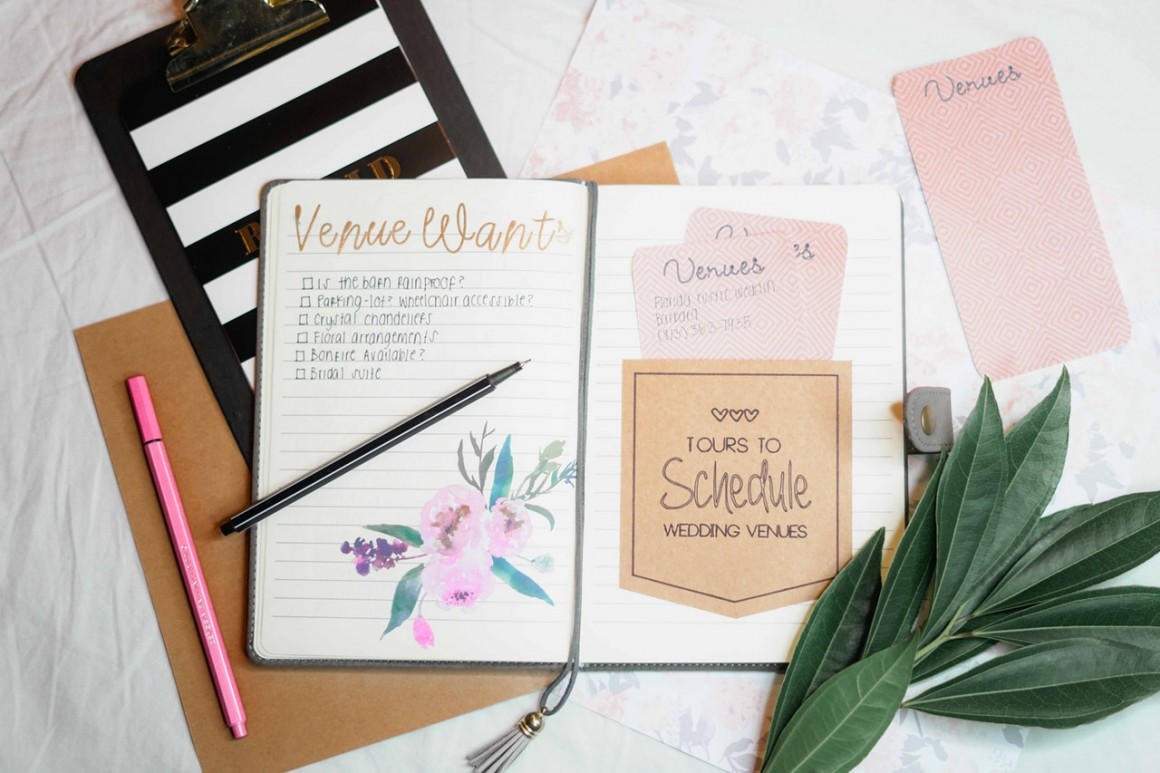The proposal went perfectly, the Facebook announcement has been posted, and at last, you have a wedding to plan! With the constant influx of news and social media about extravagant weddings, it can get overwhelming to recognize what is reasonable.
This list of five wedding planning traps not to fall into will keep you sane and will make your wedding planning process as seamless as possible
Pre-wedding diet
A study conducted at Cornell University found that 70 percent of brides-to-be go on a pre-wedding diet, and one-third of them take dangerous measures such as diet pills, fasting, or skipping meals to achieve their “ideal” wedding weight.
Do not let this be you; your fiance loves you not for the number on the scale but for the beautiful person you are inside. A bride should feel energized and healthy on her wedding day, not fatigued and starving. Even if you’re planning a wedding in January or February, don’t sweat that holiday weight gain, and enjoy an extra serving of mincemeat pie.
Freaking out about bridesmaid dresses
One study found that 64 percent of brides have bridesmaids wear matching outfits, but even more surprisingly, the same study found the average cost of bridesmaid attire (dress, shoes, and accessories) is $335. That is a lot of money to spend on bridesmaid dresses that will likely never be worn again.
Instead, take this opportunity to let your bridesmaids choose any dress related to a broad theme or color system. Giving each one of your girls the opportunity to select a custom bridesmaid dress will make her feel like you really appreciate her for who she is and will show that you respect her financial situation, too.
After all, the truth of the matter is no one will be looking at the bridesmaids when the bride and groom enter the room, anyway!
Feeling pressure to invite everyone
When beginning to conceptualize your wedding guest list, it is easy to get overwhelmed. With platforms like Facebook and Instagram, it can feel like everyone is a friend, and you might be self-conscious about offending someone by not inviting them.
In moments of doubt, remember that in the United States, the average number of wedding guests is 120 people, which really isn’t that many people if you think about it. If you have not spoken with someone in over a year, they are probably not going to be offended if they do not receive a wedding invitation.
Keeping the guest list small is a good way to create an intimate experience that is also budget friendly.
Overspending
The purpose of a wedding is to begin the rest of your life on a beautiful high note, not to leave you with financial stress and in need of credit repair service at the start of your marriage! Temping as it may be, do not overspend on your wedding.
According to a study done at Emory University, marriage longevity is inversely associated with spending on both the engagement ring and wedding event. This means that the more a couple spends on their engagement and wedding, the less likely they are to stay married.
So when you are being berated by your mother-in-law to have monogrammed napkins, remember this statistic and stick to your frugal guns!
Doing it all yourself
Speaking of overspending — with the rise of DIY culture, it is normal to feel every aspect of a perfect wedding must be artisanally crafted and locally sourced. On top of that, it must all be perfectly crafted by the couple to showcase their creativity and uniqueness. All of this DIY-ing can get wildly expensive and end up costing you far more than simply ordering the products from a professional.
The only thing that will come of the DIY mindset is a nervous breakdown and an endless feeling of failure. Planning an event for a large group of people requires a team, and more often than not that team is filled with professionals who know how to arrange flowers, create favors, bake cakes, or do one of any number of “DIY-friendly” tasks Pinterest has convinced you anyone can tackle.
The average cost of a wedding planner ranges from $1,500 to $5,000, depending on what services he or she provides. If there is any room at all in the budget, a wedding planner can mean the difference between drowning in DIY and affordably hiring pros to handle the details.
Conclusion
A wedding should be a time of joy and celebration. It is easy to get overwhelmed by expectations imposed by friends, family, or society at large, but remember the wedding should reflect the wants and needs of the couple first and foremost.
The bride and groom should focus on planning a wedding well within a budget that includes only those who are meaningful to the couple or immediate family. Brides should avoid crash diets and consider giving bridesmaids choices when selecting what to wear.
Finally, couples should eschew the “do it yourself” movement in exchange for enlisting the help of friends and professionals who can ensure things go flawlessly.
What tips or tricks do you have for couples-to-be? Leave your feedback in the comments section!


